Aromatherapy
Aromatherapy is a technique that uses fragrant essential oils to improve both physical and mental well-being. It may help manage pain, aid digestion, promote relaxation, enhance mood, and alleviate menstruation symptoms, among other things.
Aromatherapy is a holistic therapeutic method that uses natural plant extracts to enhance health and well-being. It is generally referred to as essential oil therapy. Aromatherapy is viewed as both an art and a science. Aromatherapy has been gaining popularity in the scientific and medical communities.
Essential oils can improve your health and well-being if used properly.
Want to try essential oils? Learn about the conditions they may help cure and how to obtain excellent essential oils, as not all products are made equal.
What is Aromatherapy?
- Aromatherapy is a kind of complementary and alternative medicine (CAM). It employs essential oils to help relieve symptoms or improve overall well-being. It is a holistic therapy, which means it benefits your entire being – mind, body, and soul. In aromatherapy, essential oils are inhaled or applied (diluted) to the skin.
- Aromatherapy has been utilized by people all over the world for centuries. In the United States, aromatherapy is frequently used in conjunction with other therapies for illnesses such as anxiety. People utilize aromatherapy to stay healthy and feel better in general.
- Aromatherapy services are provided at the offices or clinics of healthcare specialists who specialize in complementary and alternative medicine (CAM). You may utilize aromatherapy on your own, but you must first master the appropriate procedures. Before beginning aromatherapy, consult with a healthcare expert to understand how to conduct it correctly and ensure your safety.
How long has aromatherapy existed?
Aromatherapy dates back more than 3500 years BC. Aromatics were used during the period for religious, perfumery, and medicinal purposes. Rene-Maurice Gattefosse, a French chemist, created the term “aromatherapy” in 1935 after claims to have successfully treated a burn using lavender essential oil.
Humans have used aromatherapy for thousands of years. Aromatic plant components were used in resins, balms, and oils by ancient societies such as China, India, and Egypt. These natural ingredients were employed for both medicinal and religious purposes. They were known to provide bodily and psychological advantages.
The Persians are credited with developing essential oil distillation around the 10th century, however, the process may have existed for a long time before that. The 16th century saw the publication of information about essential oil distillation in Germany. French physicians in the nineteenth century recognized essential oils’ potential for illness treatment.
In the nineteenth century, medical practitioners gained prominence and shifted their attention to the use of chemicals. However, French and German doctors continued to recognize the value of natural botanicals in disease treatment.
What are Essential Oils?
- Essential oils are primarily plant extracts. They are manufactured by steaming or pressing various plant components (flowers, bark, leaves, or fruit) to extract the fragrance-producing chemicals.
- A single bottle of essential oil can be produced from many pounds of plant material. Essential oils have various purposes in plants besides producing aroma.
- Not all goods containing plant essences are essential oils. True essential oils are not mixed with additional chemicals or scents. They are manufactured by a specialized technique that does not alter the plant’s chemistry.
- Lemon, chamomile, lavender, cedarwood, and bergamot are some of the essential oils commonly utilized in aromatherapy.
What are the carrier oils?
- Carrier oils, commonly known as base oils or fixed oils, are plant-derived products. Their chemical constitution differs from that of essential oils. They do not have a strong odor and do not evaporate like essential oils do.
- Carrier oils are a way to safely get essential oils into your body. People dilute essential oils using carrier oils. Because essential oils are so strong, you often use a considerably larger amount of carrier oil than essential oil. Carrier oils include a variety of beneficial elements for the skin. These contain antioxidants and vital fatty acids.
- Here are some examples of carrier oils:
- Coconut oil.
- Rosehip oil.
- Grapeseed Oil.
- Sweet almond oil.
How does Aromatherapy Work?
- Aromatherapy, according to experts, activates scent receptors in the nose, which convey information to the brain via the nerve system.
- When breathed, aromatherapy stimulates the neurological system. This means aromatherapy sets off a chain reaction of messages to your brain and chemical responses throughout your body. This exercise begins when you smell an essential oil.
- Like all other odorous compounds, essential oils emit small molecules into the atmosphere. When you breathe an essential oil, its molecules enter your nose. Olfactory receptors are specialized cells in your nose that detect the presence of chemicals. In response, they send signals to your brain via the olfactory nerve.
- These messages trigger activity in your hypothalamus and limbic system. Your limbic system consists of components (including the amygdala) that help you manage your emotions and remember memories.
- Your brain releases chemicals such as :
- Serotonin.
- Endorphins.
- Dopamine.
- These hormones assist control of a variety of bodily activities, including emotion, sleep, and digestion. The release of these hormones can benefit you in a variety of ways, including reduced anxiety and pain perception.
Researchers are still investigating how aromatherapy impacts the body. - Some experts believe that when you apply essential oils to your skin, they trigger a reaction in your skin and other regions of your body, such as your joints.
What are the methods for Aromatherapy?
The most common methods include:
- Inhalation. There are several ways to inhale essential oils. You might make face steam by adding an essential oil to a bowl of hot water (up to six drops per ounce). Then, lean over the bowl, close your eyes, and take a breath in. You may also use a diffuser to disperse the fragrance around your room or home. Be sure to follow the directions for the diffuser you purchase.
- Aromatherapy massage. A qualified practitioner can massage you with lotion or oil-based essential oils. You can also choose to have massages at home. You should only use appropriately diluted essential oils. Dilute your essential oil to around 1% concentration before using it for massage.
- Bath. You may want to add essential oils to your bath. Always blend the essential oil with a carrier oil (such as jojoba oil) or dispersant (such as soluble) before using it. Undiluted essential oil will not combine with the bath water and may irritate the skin.
What is Aromatherapy Used For?
Although some individuals believe essential oils are natural cures for various disorders, there is insufficient data to prove their efficacy in human health. Lab studies show that some essential oils can kill a kind of Lyme bacterium more effectively than antibiotics, but human clinical trials have had conflicting results.
Some research suggests that utilizing essential oils is beneficial, while others show no change in symptoms. Aromatherapy should not be used instead of standard medical treatment. However, evidence indicates that aromatherapy can be beneficial for some illnesses.
- It may help reduce stress, anxiety, and sadness.
- Increase sensations of relaxation.
- Improve your sleep.
- Contribute to improving the quality of life for persons suffering from long-term health conditions such as dementia.
- Certain forms of pain can be relieved, such as discomfort caused by kidney stones and knee osteoarthritis.
- Fight germs when you apply them to your skin.
- Reduce some of the negative effects of cancer therapy, such as nausea and discomfort.
What Conditions are Managed with Aromatherapy?
There’s evidence that aromatherapy can help you manage
- Stress.
- Sleeping disorders.
- Menstrual cramps.
- Early labor.
- Low appetite
- Asthma.
- Insomnia.
- Fatigue.
- Inflammation.
- Peripheral neuropathy.
- Alopecia.
- Cancer.
- Erectile dysfunction.
- Arthritis.
- Menopause.
Aromatherapy for Anxiety.
- Many research suggests that aromatherapy might help control anxiety. It appears to be most effective in treating state anxiety, which is an emotional state that occurs when you believe you are in danger or under stress.
- State anxiety is just momentary and occurs as a result of your current condition. People may experience it during medical crises. For instance, you may have state anxiety when undergoing a test, such as an MRI, About to have surgery, or In labor.
- According to some studies, aromatherapy may assist with various types of anxiety, such as trait anxiety. This is a consistent feeling of anxiety throughout your life, rather than one that occurs just in specific situations.
- Congenital anxiety, for example, might indicate generalized anxiety disorder. People with chronic conditions may also suffer anxiety on a more frequent basis.
- Your healthcare professional can tell you more about the potential advantages of aromatherapy in your specific circumstances.
Side Effects of Utilizing Aromatherapy
Among the negative effects of utilizing essential oils are:
- Rash
- Episodes of asthma
- Headaches hypersensitivity responses
- Inflammation of the skin
- Nausea
Precaution While Using Aromatherapy
Follow precautions when using essential oils.
- Not everyone will benefit from all essential oils because they all trigger physiological reactions. When drugs and essential oils are taken together, the chemical components in the oils can have negative effects. They can make traditional medications less effective or worsen the patient’s existing medical issues.
- For example, a person with high blood pressure should stay away from stimulants like rosemary. A person with an estrogen-dependent breast or ovarian tumor should stay away from certain substances because they behave similarly to estrogen, such as fennel, aniseed, and sage.
Before being diluted, concentrated products may be toxic, thus they should be handled carefully. It is advised to use a maximum concentration of five percent. - Before being diluted, concentrated products may be toxic, thus they should be handled carefully. It is advised to use a maximum concentration of five percent.
- Certain oils release toxins that, when consumed internally, can harm the kidneys, liver, and nervous system. Essential oils can be dangerous and even deadly if swallowed.
When using aromatherapy, people with any of the following medical conditions should exercise extra caution:
- An allergy or allergies
- An allergy type is hay fever.
- Asthma
- Skin disorders like psoriasis and eczema
- Individuals who have the following ailments need to use extra caution:
- epileptic seizures
- An elevated blood pressure, or hypertension
Research has not shown that using aromatherapy while pregnant or during breastfeeding is safe, so it is not advised. Aromatherapy during the first trimester of pregnancy may be harmful to the growing fetus. Peppermint essential oil may be expressed in breast milk, so it is best to avoid it for nursing women.
Citrus-based essential oils have the potential to increase skin sensitivity to UV radiation and raise the risk of sunburn. Certain conditions can be helped by aromatherapy, but it must be utilized carefully and under the guidance of a trained professional.
How Do You Use Essential Oils Safely?
The quality of essential oils on the market varies widely, from pure to diluted with less expensive substances. Furthermore, because there is no regulation, the label may not even describe everything in the bottle you’re purchasing. This is why essential oils should not be consumed.
It also warns against using essential oil diffusers, which are little domestic equipment that produces fragrant vapor. Diffusion in a public space or a multi-member home can have varying effects on people. For example, peppermint is frequently advised for headaches.
But if you use it with a child under the age of 30 months, they may become uneasy. It might have a bad outcome. Additionally, someone with a rapid pulse may respond negatively to peppermint.
The safest methods to utilize essential oils are:
- Aromatherapy Accessories: Necklaces, bracelets, and keychains constructed of absorbent materials that you may add essential oils to and sniff all day.
- Body oil: It is a blend of essential oils and carrier oil, such as olive, jojoba, or coconut oil, which may be rubbed into the skin. Because essential oils are concentrated, they might irritate. Avoid applying them to full strength to the skin.
- Aroma stick: Also known as an essential oil inhaler, these portable plastic sticks include an absorbent wick that soaks up the essential oil. They come with a cover to conceal the aroma until you’re ready.
Allergic responses to Essential oils.
A tiny proportion of people may be irritated or sensitive to specific essential oils. If you have atopic dermatitis or a history of allergic responses to topical treatments, you are more likely to experience a negative reaction. Although any essential oil might cause a response, certain are more likely to be harmful.
These include:
- Oregano oil
- Cinnamon Bark Oil
- Jasmine oil
- Lemongrass oil
- Ylang-ylang oil.
- Chamomile Oil
- Bergamot oil
Because pure essential oils are powerful, diluting them with carrier oil is the best approach to prevent a negative reaction when applied directly to the skin. If you get a red, itchy rash or hives after using essential oils, visit your doctor if You may be suffering an allergic response.
Which Essential Oils Are Good?
There are hundreds of essential oils, each having a unique scent and chemical composition. Which essential oils are ideal depends on the symptoms you want to alleviate or the smells you like.
Here are the most common essential oils include:
- Lavender Oil: Many individuals find the lavender aroma calming. It is frequently used to alleviate tension and anxiety and promote restful sleep.
- Tea Tree Oil: This essential oil, also known as melaleuca, was utilized by Australia’s aboriginal people to cure wounds. Tea tree essential oil is believed to have antibacterial, antiseptic, and disinfecting properties. It is frequently used in shampoos and skin care products to treat acne, burns, athlete’s foot, and bug bites. It is used in mouth rinses, however it should never be ingested due to its toxicity.
- Peppermint oil: When taken in an enteric-coated capsule, peppermint essential oil has been shown to help reduce symptoms of irritable bowel syndrome (IBS). When administered topically, it may help to reduce tension headaches.
- Lemon oil: Many individuals believe that the refreshing aroma of lemon oil improves their mood. It is also commonly used in homemade cleaning remedies.
- Basil essential oil: It is used to improve focus and relieve certain symptoms of depression. It may alleviate headaches and migraines. It should be avoided while pregnant.
- Bergamot essential oil: It is supposed to benefit the urinary tract and digestive tract. When mixed with eucalyptus oil, it may aid in treating skin issues such as stress and chicken pox.
- Black pepper essential oil: It is often used to improve circulation, alleviate muscle aches and pains, and treat bruises. When combined with ginger essential oil, it is used to relieve arthritic pain and increase flexibility.
- Chamomile essential oil: It is effective in treating eczema.
- Citronella essential oil, Its a cousin of lemongrass, works as an insect repellant.
- Clove essential oil: It is a topical analgesic or painkiller that is often used to treat toothaches. It is also used as an antispasmodic antiemetic, preventing vomiting and nausea, as well as a carminative, which prevents gas in the stomach. It contains antibacterial, antioxidant, and antifungal effects.
- Eucalyptus essential oil: During a cold or flu, eucalyptus essential oil can help ease symptoms in the airways. It is frequently paired with peppermint. Eucalyptus is a common allergen, so use caution.
- Geranium essential oil: It may be used to treat skin ailments, relieve tension, and repel mosquitos.
- Jasmine essential oil: It has been called an aphrodisiac. While scientific data is limited, studies have suggested that the odor of jasmine boosts beta waves, which are associated with alertness. As a stimulant, it may boost penile blood circulation.
- Lavender essential oil: It is used as an antibacterial to treat small wounds and burns, as well as to promote relaxation and sleep. It is believed to alleviate headache and migraine symptoms.
- Rosemary essential oil: It may stimulate hair growth, improve memory, reduce muscular spasms, and help the circulatory and neural systems.
- Sandalwood essential oil: It is said by some to have aphrodisiac properties.
- Thyme essential oil: It is said to alleviate weariness, uneasiness, and stress.
- Yarrow essential oil: It is used to cure cold and flu symptoms, as well as to decrease joint inflammation.
Massage oil will be blended with a “carrier oil” to dilute it and give lubrication.
How to Look for Quality Essential Oils
The most crucial consideration when purchasing essential oils is product quality. However, determining which oils are the best is difficult since no regulatory organization offers a grading system or certification for essential oils.
Several sellers say their essential oils are “therapeutic grade,” but this is only a marketing word.
Unfortunately, there are many goods available online or in stores that have not been properly harvested or include ingredients that are not specified on the label.
Here are some guidelines to assist you select for pure essential oils:
- Check out the label: It should include the plant’s Latin name, purity information, any additional substances, and the country where the plant was cultivated.
- Analyze the company. Purchase items from a well-known and respected aromatherapy company that has been in business for years.
- Choose dark-colored glass containers. Pure essential oils are very concentrated. They can degrade plastic bottles over time, contaminating the oil. To preserve the purity of essential oils, most firms package them in little brown or blue glass bottles.
- Avoid fragrance oils. Fragrance or perfume oils are composed of essential oils mixed with chemicals or wholly of chemicals. They are not suited for aromatherapy; instead, seek bottles that contain a single essential oil in its purest form (100% essential oil, no fillers).
- Compare the prices: Essential oils are priced differently depending on how extensive the harvesting and processing processes are. Within a line, pricing should variety of prices: rose absolute or sandalwood oils will be more costly, whilst sweet orange oil will be less expensive. If you locate a costly essential oil at a very low price, it’s most likely not pure.
Summary
Essential oils are perfumed liquids that manufacturers extract from a variety of plants. Many people find that aromatherapy with certain essential oils may help them relax and ease tension and anxiety. When employing essential oils, it is critical to dilute them in a carrier oil first. Oils can cause skin irritation or allergic responses, so test them on a tiny patch of skin before using them on larger regions.
As you investigate the applications of essential oils, pay attention to how the various oils and techniques of application impact you. Always talk with your doctor before beginning any aromatherapy treatment. Remember that aromatherapy is intended to be a complementary therapy. It is not intended to substitute any doctor-approved treatment regimen.
FAQs
What is aromatherapy used for?
Aromatherapy is employed in several settings, including health resorts and hospitals, to treat a wide range of illnesses. In general, it appears to alleviate pain, enhance mood, and induce relaxation.
What is aromatherapy called?
It may help manage pain, aid digestion, promote relaxation, enhance mood, and alleviate menstruation symptoms, among other things. Aromatherapy is a holistic therapeutic method that uses natural plant extracts to enhance health and well-being. It is sometimes referred to as essential oil treatment.
Is aromatherapy helpful for anxiety?
Recent research suggests that essential oils may help alleviate anxiety symptoms. Essential oils should primarily be utilized with a diffuser since they may be quite abrasive on the skin. Essential oils can be mixed with a carrier oil, such as coconut oil, and rubbed into your skin.
Why is aromatherapy relaxing?
When we inhale the perfume of an essential oil, it sends messages to our brain, influencing our mood, emotions, and general well-being. Essential oils may also be absorbed via the skin during massage or when mixed with bathwater, allowing their therapeutic effects to be delivered directly into the circulation.
Why is it called aromatherapy?
Rene-Maurice Gattefosse, a French chemist, developed the term aromatherapy in 1928 to describe the use of essential oils. However, its origins may be traced back to around 3500 before Christianity, when aromatics were utilized in religious rites, perfume, and medicine.
Who Should Use Aromatherapy?
If you want to enhance your health, from worry to bad sleep, you should explore aromatherapy. This type of therapy involves using plant extracts known as essential oils, which are either breathed via your nose or applied to your skin.
What is the usage of scent oil?
Inhalation of the oils is evaporated into the air via a diffuser container, spray, or oil droplets, or they are breathed in, such as during a steam bath. Aside from their pleasant odor, aromatherapy oils can give respiratory disinfection, decongestant, and psychological advantages.
Is Aromatherapy a science or an art?
Aromatherapy is a type of complementary and alternative medicine (CAM) that is becoming increasingly prominent in modern society. The term aromatherapy refers to the use of essential oils for aromatic inhalation, compresses, and topical applications via massage.
References
- Cronkleton, E. (2019, March 8). Aromatherapy Uses and Benefits. Healthline. https://www.healthline.com/health/what-is-aromatherapy#summary
- Crna, R. N. M. (2019, February 18). Which essential oils can relieve anxiety? https://www.medicalnewstoday.com/articles/324478#summary
- Professional, C. C. M. (n.d.-b). Aromatherapy. Cleveland Clinic. https://my.clevelandclinic.org/health/treatments/aromatherapy
- Aromatherapy: Do essential oils work? (2021, August 8). Johns Hopkins Medicine. https://www.hopkinsmedicine.org/health/wellness-and-prevention/aromatherapy-do-essential-oils-really-work#:~:text=Aromatherapy%20is%20the%20practice%20of,emotional%20center%20of%20the%20brain.
- Rd, H. W. (2019, September 30). What are essential oils, and do they work? Healthline. https://www.healthline.com/nutrition/what-are-essential-oils

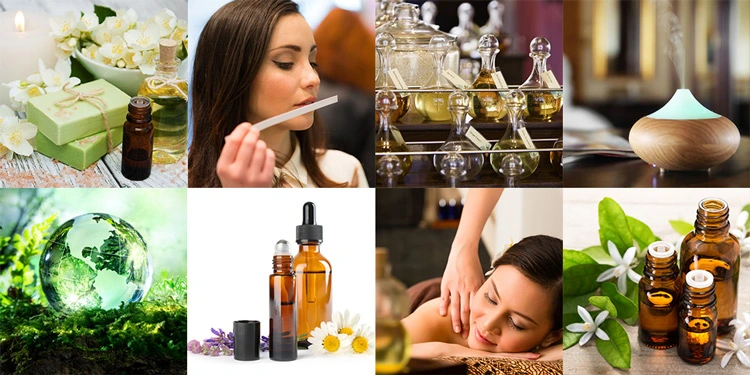
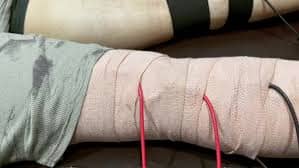
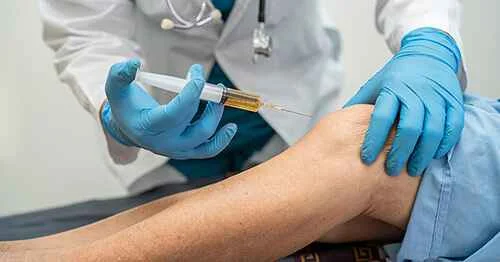
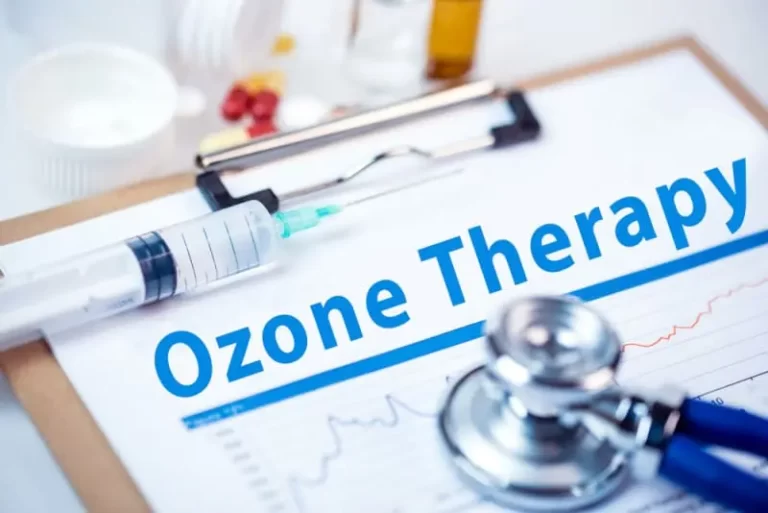
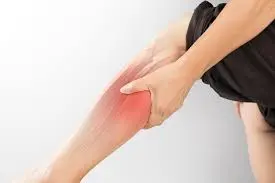

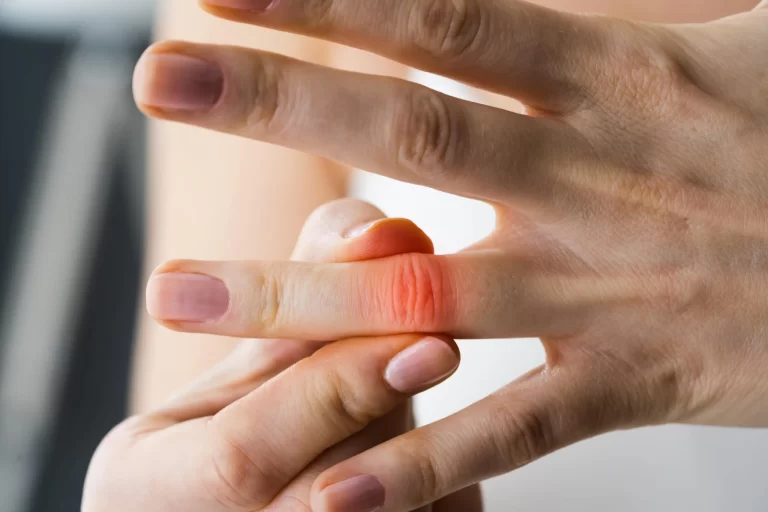
One Comment